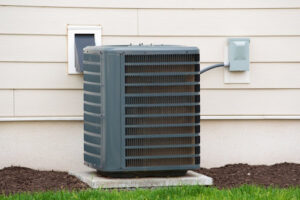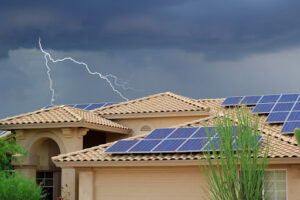Choosing the right heating system for your home is a critical decision that impacts not only your comfort during colder months but also your energy bills and overall home efficiency. In this comprehensive blog, we’ll explore the top five factors to consider when determining how to choose the best heating system for your house. Whether you’re building a new home or upgrading your current system, these insights will help you select the best home heating system tailored to your needs.
Types of Home Heating Systems
When learning how to choose the best heating system for your house, it’s important to know which options are available to you. Understanding the different types of heating systems is the first step in making an informed decision. The most common options include gas furnaces, electric furnaces, heat pumps (including air source and geothermal types), and radiant heating systems. Each type has its advantages and disadvantages in terms of energy efficiency, cost, and suitability for different climates.
Gas Furnaces
If you want to find the best home heating system for your needs, you may want to start with one of the most popular options: furnaces. Gas furnaces are highly sought after for their effectiveness in generating heat, making them an ideal choice for regions with colder climates and where natural gas is easily accessible. They stand out for their exceptional Annual Fuel Utilization Efficiency (AFUE) ratings, which reflect their ability to efficiently convert fuel into heat. This efficiency is a key factor in their popularity, especially in forced air systems.
These systems utilize the furnace’s capacity to generate heat, distributing warm air throughout a space, thereby ensuring a comfortable and energy-efficient environment. If you’re considering a gas furnace system or want to learn more about how it can contribute to an energy-efficient and warm living or working space, our technicians are ready to assist you with detailed information and support.
Electric Furnaces
Electric furnaces are indeed a suitable choice for regions with milder winters due to their ease of installation and lower costs compared to gas furnaces. However, it’s important to note that they might result in higher energy bills.
Heat Pumps
Electric heat pump systems present a versatile solution, as they are capable of both heating and cooling. Air source heat pump units work by extracting heat from the outside air, even in cold conditions. This makes them a practical option for efficient house heating in various climates. Geothermal heat pump units, on the other hand, harness heat from underground. Both types of heat pumps are part of a broader category of electric heat pumps, utilizing different fuel sources (air and geothermal energy) to provide an efficient house heating system.
Radiant Heating Systems
Radiant heating systems, such as baseboard heaters and heated floors, provide even and comfortable warmth. They are efficient as they directly heat objects and people in a room without circulating dust and allergens.
Energy Efficiency
Energy efficiency is a crucial factor in choosing the best home heating system. More efficient systems can significantly reduce your energy bills and environmental impact.
AFUE Ratings
When looking at furnaces, pay attention to the AFUE rating. A higher rating means greater efficiency. Modern gas furnaces can have AFUE ratings of 90 percent or higher, whereas older models might be significantly less efficient.
Heat Pump Efficiency
Heat pumps are rated by Heating Seasonal Performance Factor (HSPF) and Seasonal Energy Efficiency Ratio (SEER) for their heating and cooling efficiency, respectively. Look for systems with higher HSPF and SEER ratings for better energy savings.
Climate Considerations
If you want to know how to choose the best heating system for your house, it’s important to take your climate into consideration. The climate in your area plays a significant role in determining the most suitable heating system. For example, heat pumps are highly efficient in mild to moderately cold climates but might not be the best option for extremely cold areas.
In colder regions, gas furnaces or geothermal heat pumps are more effective. They provide consistent warmth and are more reliable in maintaining comfortable indoor temperatures during harsh winters. For milder climates, air-source heat pumps or electric heating systems can be sufficient and more cost-effective.
Installation and Maintenance Costs
Consider the initial installation costs and ongoing maintenance expenses of the heating system. Gas furnaces, while efficient, might require more complex installation, especially if your home doesn’t already have a gas line. Electric systems, though cheaper to install, can have higher long-term costs due to energy usage.
Regular Maintenance
Regular maintenance is key to prolonging the lifespan and efficiency of any heating system. Factor in the cost and frequency of routine checks, filter replacements, and potential repairs.
Size and Capacity
The size of the heating system should be appropriate for your home. An oversized or undersized unit can lead to inefficiency, increased wear and tear, and discomfort.
Professional Assessment
Consult with heating experts to determine the right size. They will consider your home’s square footage, insulation levels, and other factors to recommend the appropriate capacity.
Schedule Your Heating System Installation Today!
Selecting the best home heating system requires careful consideration of your specific needs and circumstances. Take into account the type of system, energy efficiency, climate, costs, and size to make an informed decision. For personalized advice and professional heater installation in Houston, TX, or one of the surrounding areas, turn to Universal Home Experts.
Our team of experts will guide you through every step, ensuring you choose the most efficient heating system for your home. Be assured we can assist with all of your heating and air conditioning system needs.
Now that you know how to choose the best heating system for your house, why wait? Contact us today to schedule your installation!



